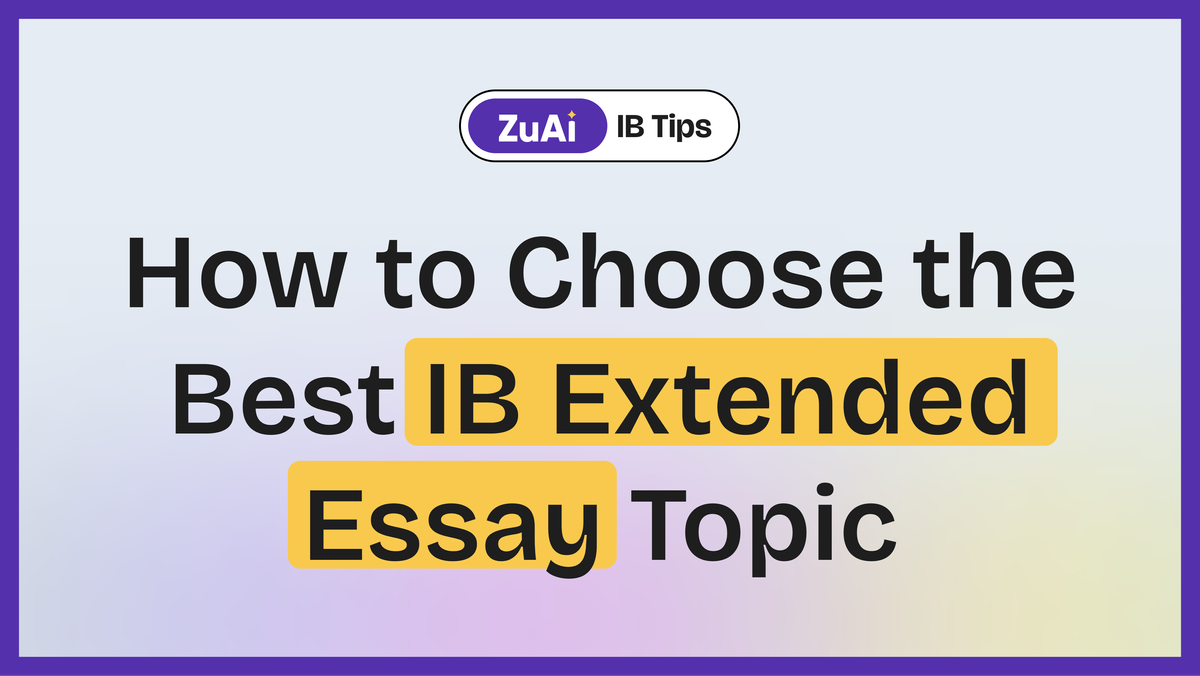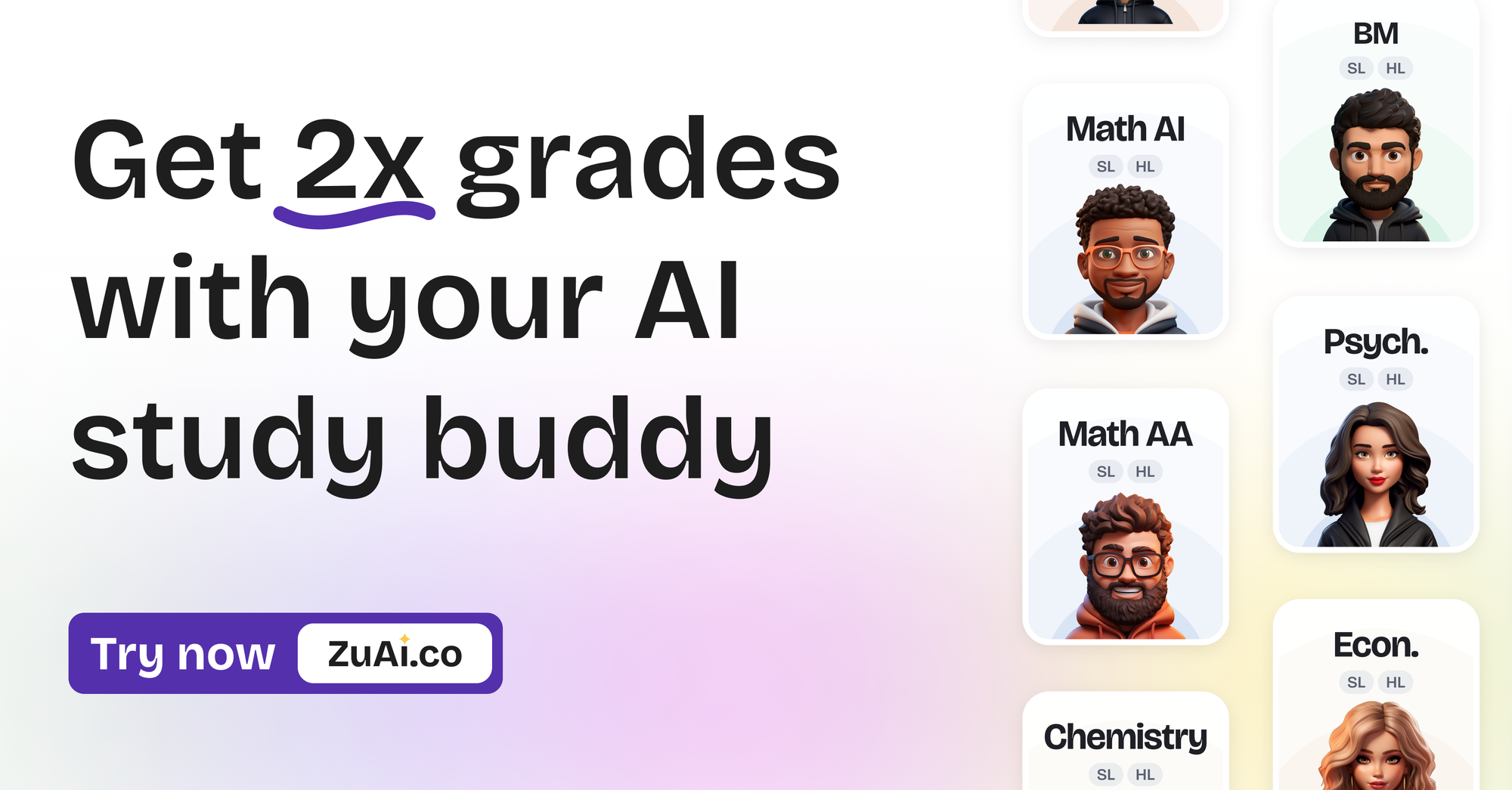How to Choose the Best IB Extended Essay Topic: A Step-by-Step Guide for N24 and M25

Author: Emma Roberts, IB Educator and EE Examiner
Introduction
The IB Extended Essay (EE) is a core component of the IB Diploma Programme, and it provides students with an opportunity to explore a topic of their interest in great depth. However, one of the most common challenges students face is choosing the right topic. Your EE topic can make or break your experience, so it’s important to choose wisely. In this guide, we’ll walk you through the steps to selecting the perfect IB Extended Essay topic to help you succeed in your N24 or M25 session.
Why Is Choosing the Right IB EE Topic So Important?
Your Extended Essay is more than just another assignment — it’s a chance to explore a subject you are passionate about. Choosing the right topic is crucial because:
- It sets the stage for your research and analysis.
- It determines how much you’ll enjoy the process.
- It impacts your overall performance and final grade.
Pro Tip: Select a topic that not only interests you but also aligns with your strengths and access to resources. An engaging and manageable topic will keep you motivated and make the process smoother.
Step 1: Identify Your Interests
The first step in choosing an EE topic is to think about what truly interests you. The IB allows you to choose a topic from any of the IB subjects you are taking, so start by considering the subjects you enjoy the most.
Ask Yourself:
- What topics have intrigued me the most in my IB courses?
- Are there specific areas I’ve found particularly interesting or inspiring?
Example: If you enjoy History, consider historical events, trends, or figures that have sparked your curiosity. If you’re passionate about Biology, think about biological processes or environmental issues that fascinate you.
Step 2: Narrow Down Your Topic
Once you’ve identified your area of interest, it’s time to narrow down your topic. A common mistake is choosing a topic that’s too broad, which can lead to shallow analysis or unmanageable research. Instead, focus on a specific aspect of your subject area.
Tips for Narrowing Your Topic:
- Focus on a specific period, case study, or experiment.
- Relate your topic to current events or pressing issues.
- Ask a “how” or “why” question that encourages deep analysis.
Example: Instead of choosing “The Role of Women in World War II,” narrow it down to “How Did Women’s Roles in Britain Change During World War II?” This will allow for focused research and clear analysis.
Step 3: Ensure Feasibility
After narrowing down your topic, the next step is to ensure that it’s feasible to research. Some topics may seem interesting but may be too difficult to explore due to lack of data or limited resources.
Key Considerations:
- Access to Research Materials: Make sure there are enough resources available, such as books, academic journals, or case studies.
- Ability to Conduct Experiments (for Sciences): If you’re writing an EE in a science subject, ensure that you can safely and ethically conduct the necessary experiments.
- Word Limit: Consider whether you can thoroughly explore the topic within the 4,000-word limit.
Pro Tip: Check IB Extended Essay examples to see how other students have successfully tackled topics in your chosen subject.
Step 4: Consult with Your Supervisor
Your IB supervisor is a valuable resource throughout the EE process. Once you’ve narrowed down your topic and confirmed that it’s feasible, consult with your supervisor for feedback and guidance.
Ask for Feedback On:
- The scope of your topic.
- Whether the topic aligns with the IB subject guidelines.
- Any potential challenges or limitations.
Pro Tip: Your supervisor can provide insights into the strengths and weaknesses of your topic and offer suggestions for refining it further.
Step 5: Formulate Your Research Question
Now that you have a well-defined topic, the next step is to craft a clear and focused research question. Your research question should:
- Be specific and allow for in-depth analysis.
- Be open-ended (encouraging discussion, not just a yes/no answer).
- Guide your investigation and help structure your essay.
Example: If your topic is “The Impact of Plastic Pollution on Marine Life,” your research question could be: “To what extent has plastic pollution affected the biodiversity of marine ecosystems in the Pacific Ocean since 2000?”
Step 6: Conduct Preliminary Research
Before fully committing to your topic, conduct some preliminary research. This will help you determine whether there is enough information available to answer your research question. It will also give you a better idea of the direction your essay will take.
Tips for Preliminary Research:
- Use Google Scholar or JSTOR for academic articles.
- Search for relevant books, journals, and studies in your school or local library.
- Take notes and bookmark resources that will be useful for your essay.
Pro Tip: Keep a list of sources as you go, so you can easily reference them in your bibliography later.
Bonus Tip: AI app for IB Exams = ZuAI
It's the ultimate AI app designed to help your child excel in their IB exams. As a parent, you want the best for your child, and so do we.
ZuAI IB provides personalized study support, practice questions, and detailed explanations tailored specifically to the IB curriculum.
Think of it as a smart tutor who understands your child’s unique learning needs, helping them tackle challenging subjects with confidence.
With ZuAI, you can feel reassured knowing your child is getting the extra help they need to succeed and build a bright future.
We genuinely care about your child's success and are here to support them every step of the way.

Looking for free solutions to previous year's question papers? Check out ZuAI's YouTube channel.
FAQ Section
Q1: What makes a good IB Extended Essay topic?
A: A good IB Extended Essay topic is one that interests you, is specific enough for in-depth research, and meets the feasibility requirements in terms of access to resources and data. Your topic should allow you to explore different perspectives and provide thorough analysis.
Q2: Can I change my EE topic after starting the research?
A: Yes, but it's best to choose a well-thought-out topic from the start. If you find that your research isn’t progressing or that your topic is too difficult, consult with your supervisor to make adjustments.
Q3: How long should my Extended Essay be?
A: The IB Extended Essay should be approximately 4,000 words. Stay within the word count to ensure that your analysis is thorough but concise.
Q4: How important is my research question?
A: Your research question is critical as it guides the structure of your essay and determines the scope of your research. A clear, focused research question helps you stay on track and makes your argument more coherent.
Q5: What subjects can I choose my EE topic from?
A: You can choose your Extended Essay topic from any of the subjects you are studying as part of the IB Diploma Programme. Ensure that your topic fits within the subject guidelines and criteria.
Conclusion
Choosing the right IB Extended Essay topic is a crucial first step toward achieving success in your N24 or M25 session. By identifying your interests, narrowing your focus, ensuring feasibility, and crafting a strong research question, you can set yourself up for a rewarding and manageable EE process. Remember to consult with your supervisor for feedback and guidance along the way, and take the time to conduct preliminary research before fully committing to your topic.
